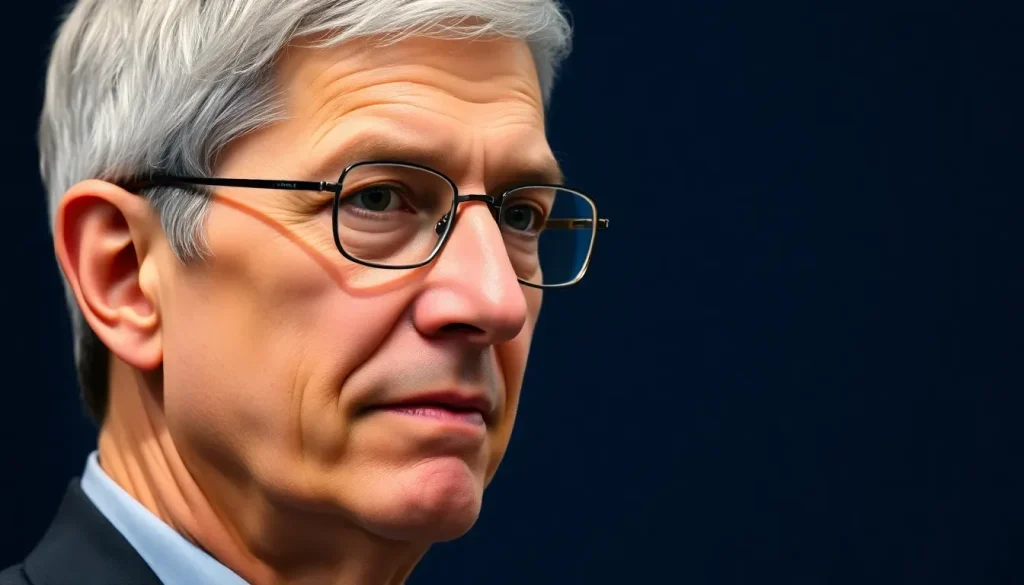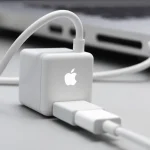Former executives criticize Tim Cook for undermining Apple's ethics

Apple, a company long revered for its commitment to user privacy and civil liberties, faces criticism following its decision to comply with a demand from the Department of Justice (DoJ) that led to the removal of the ICEBlock app from the App Store. This controversy raises significant questions about the ethical implications of corporate compliance with governmental pressure.
On October 2, Apple took down the ICEBlock application, which had served as a platform for users to report and track the activities of the Immigration and Customs Enforcement (ICE) in the United States. This move has prompted former Apple employees to voice their concerns, arguing that it contradicts the company's previous stance to advocate for user rights and freedom.
the backlash against apple's decision
Wiley Hodges, a former product marketing executive with a 22-year tenure at Apple, articulated his discontent in a letter addressed to CEO Tim Cook. In his communication, Hodges expressed that he is "deeply disturbed" by Apple's actions, noting that he previously viewed the company as a champion of consumer rights. He has since reconsidered his stance, questioning the integrity of Apple's commitment to user privacy.
Hodges praised Apple for previously articulating principles that embodied the highest ideals, including human rights and individual privacy. He highlighted the company’s courageous refusal to assist the FBI in accessing an encrypted iPhone during the San Bernardino case as a prime example of this principled stance. This refusal, he argues, showcased Apple's dedication to user trust and its willingness to confront governmental pressure.
According to Hodges, the decision to remove ICEBlock without clear evidence of a lawful basis represents a severe erosion of Apple's moral authority. He fears that such compliance could set a dangerous precedent, potentially leading Apple to acquiesce to future government requests without the necessary legal safeguards.
- Lowering standards for law enforcement requests.
- Sharing user identities with government entities.
- Blocking content that criticizes government actions.
Hodges concluded his letter by urging Apple to clarify the rationale behind its decision, emphasizing the need for transparency and adherence to the rule of law.
preserving a legacy of user empowerment
Another critical voice in this matter comes from Alex Horovitz, a former chief of manufacturing systems and infrastructure at Apple. In his own letter to Tim Cook, Horovitz echoed similar sentiments, lamenting that Apple's compliance with the removal of ICEBlock undermines the legacy of user empowerment that the company has cultivated over the years.
Horovitz recounted how Apple once took its duty to defend user rights seriously, citing the San Bernardino incident as a pinnacle moment in the company's history. He asserted that Apple's previous actions were not merely rhetorical but were grounded in a genuine commitment to civil liberties.
He argued that yielding to political pressure not only erodes the moral authority Apple has earned but also strengthens the hands of those who seek to centralize power at the expense of personal freedoms. This shift, he warns, could have devastating consequences for the trust that millions of users have placed in Apple.
Horovitz, too, called for clarity regarding the legal grounds on which the ICEBlock app was removed, urging Apple to reaffirm its commitment to principles that prioritize user rights over governmental demands.
the challenges of government compliance
Apple's choice to comply with the DoJ's demand places the company in a precarious situation. On one hand, it appears to have little choice but to comply with a legal authority; on the other hand, doing so risks alienating its user base and contradicting its long-standing principles of privacy and user empowerment.
The letters from Hodges and Horovitz emphasize a crucial theme: Apple should resist governmental bullying to protect consumer interests. However, this stance becomes complicated when considering the potential actions that government agencies may take in response to defiance.
In the case of the San Bernardino incident, while Apple faced pressure from the FBI, the repercussions of non-compliance were manageable. Fast forward to the present day, and the landscape has changed dramatically. The current government appears more willing to enforce stringent measures than in past years, raising the stakes for Apple significantly.
the implications of corporate ethics
The removal of the ICEBlock app is emblematic of a larger issue regarding corporate ethics in the face of government pressure. Apple is not just a technology company; it is a corporation that has positioned itself as a guardian of user rights and privacy. The challenge lies in balancing compliance with ethical standards that align with its brand identity.
As consumers increasingly prioritize data privacy and ethical business practices, their expectations of companies like Apple continue to rise. The company must navigate these waters carefully, ensuring that its actions reflect its stated values.
The situation also poses a critical question: to what extent should corporations yield to government demands? In an era of heightened surveillance and governmental scrutiny, the implications of such compliance can be profound, impacting not just individual users but also societal norms regarding privacy and freedom.
Ultimately, the controversy surrounding the ICEBlock app raises essential questions about the future trajectory of Apple’s moral authority. The company has built its reputation on principles of privacy, user empowerment, and civil liberty; however, recent actions suggest a willingness to compromise these values in the face of government demands.
For Apple to maintain the trust of its users, it must clearly articulate its policies and the principles guiding its decisions, particularly when navigating the complex landscape of governmental oversight. As Hodges and Horovitz have pointed out, a commitment to transparency and the rule of law is essential for preserving the company’s legacy of user advocacy.
The ongoing dialogue about Apple's role in protecting user rights highlights the critical intersection of technology, ethics, and government power, a conversation that will undoubtedly continue as societal values evolve.
For further insights into the perspectives of former Apple employees regarding this issue, you may find the following video impactful:




Leave a Reply